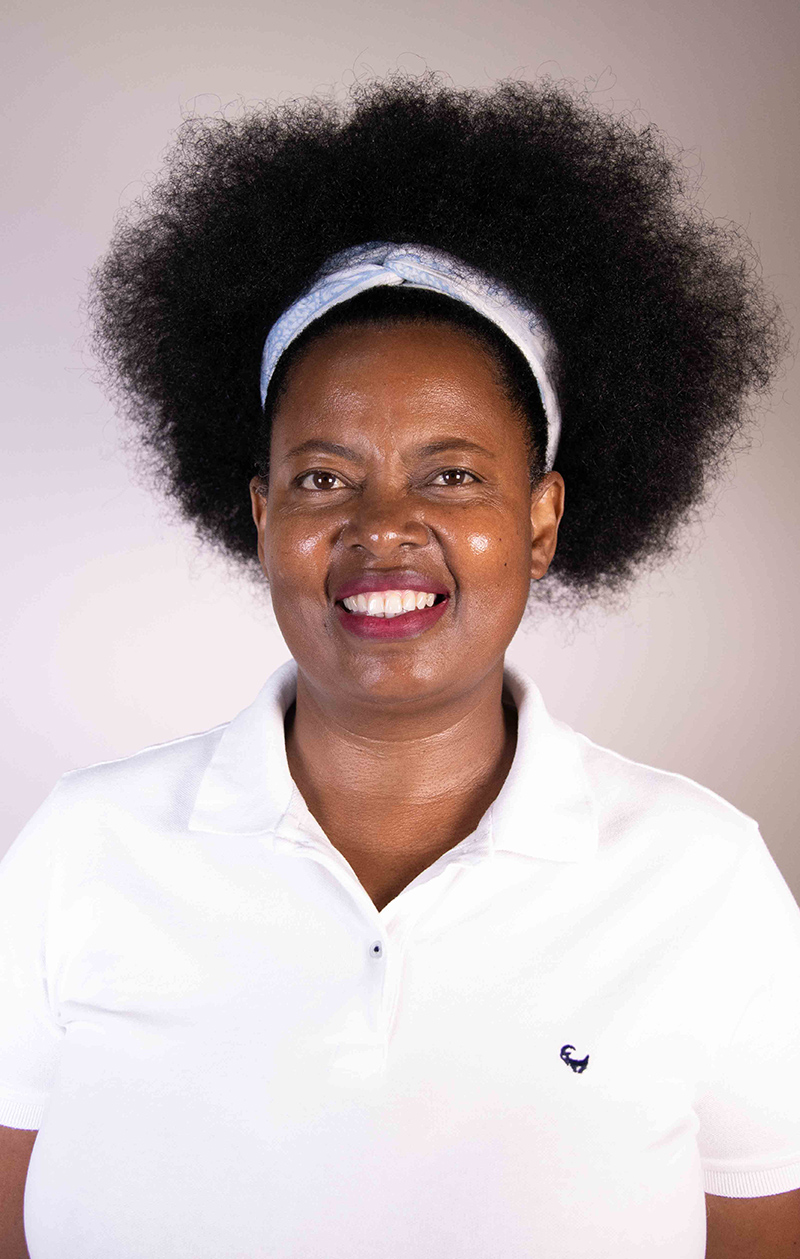On a quiet morning at the Mahikeng Campus of North-West University (NWU), the halls of the Disability Rights Unit hum with purpose. At the heart of it all is Vida Mutlaneng, a disability coordinator whose presence radiates warmth, compassion and an unwavering commitment to justice.
Affectionately known as Mama Vida or Mother Theresa by the students and university staff, it was not by chance that she came to lead this critical unit. In fact, her journey was both personal and providential.
“I was headhunted by the late Prof Dan Kgwadi,” she recalls, eyes gleaming with gratitude. “He believed I was the right person to establish the Disability Rights Unit here. It wasn’t just a job - it was a calling,” says Mama Vida.
That calling was shaped long before she arrived at the NWU. Mama Vida grew up in a home where service was not spoken about; it was lived. Her parents, who served their communities with quiet devotion, taught her early on that every human being, regardless of ability, is made in the image of God. This foundation became the compass guiding her through a lifetime of advocacy.
“Disability rights work is not about charity,” she says firmly. “It is about justice.”
Her voice carries the calm certainty of someone who has spent years challenging systems, advocating for students, and building bridges across a sometimes-resistant landscape. In her current role as coordinator of the Disability Rights Unit, Mama Vida ensures that students with disabilities are not only accommodated but truly included.
She coordinates everything from assistive technology training to academic accommodations, and from advocacy campaigns to staff awareness workshops. To her, this is all about human dignity.
“The most fulfilling part of my job is seeing students who once doubted they belonged in university, walk across the stage at graduation. That moment says: ‘I was seen. I was supported. I made it,” says Mama Vida.
One of her proudest milestones was the development of a state-of-the-art Disability Rights Unit facility, recently unveiled at the Mahikeng Campus. It’s not just a building; it’s a symbol of NWU’s commitment to inclusion, and a space where students can access the support they need to thrive.
Still, the work is not without its challenges. “Changing mindsets is the hardest part,” she admits. “Too often, people still view students with disabilities through the lens of pity or medical limitation. But my mission is to shift that view to one of equal rights, equal access and full participation,” says Mama Vida.
She speaks with the calm confidence of someone who has stood in many rooms where she was the only voice for those often overlooked. And as a woman, she brings a unique strength to this leadership space.
“Women lead with empathy, with intuition. We know what it means to fight for visibility and voice, so we bring that sensitivity to our advocacy work,” she explains. “At the NWU, I make sure disability rights are not an afterthought in policy but are central to our transformation.”
And she doesn’t walk this path alone. Through mentoring young women, especially those interested in inclusion and human rights, Mama Vida is shaping a new generation of advocates. “I always tell them: start where you are. You don’t need a title to stand up for what’s right. Advocacy begins in everyday acts of fairness and courage.”
When asked what Women’s Month means to her, her tone softens as she breaks it down as a time of remembrance and resolve. “I honour the women who made it possible for me to lead in this space. And I recommit to making sure women with disabilities are not only seen but celebrated.”
Her vision for the future is bold yet simple: a university where inclusion is second nature; a society where disability rights are non-negotiable; and a world where no one is left behind.

In honour of Women’s Month, the NWU salutes Mama Vida, an embodiment of strength, justice and tenacity. Her work reminds us that true inclusion is not about making room. It’s about redesigning the room, so everyone belongs.
